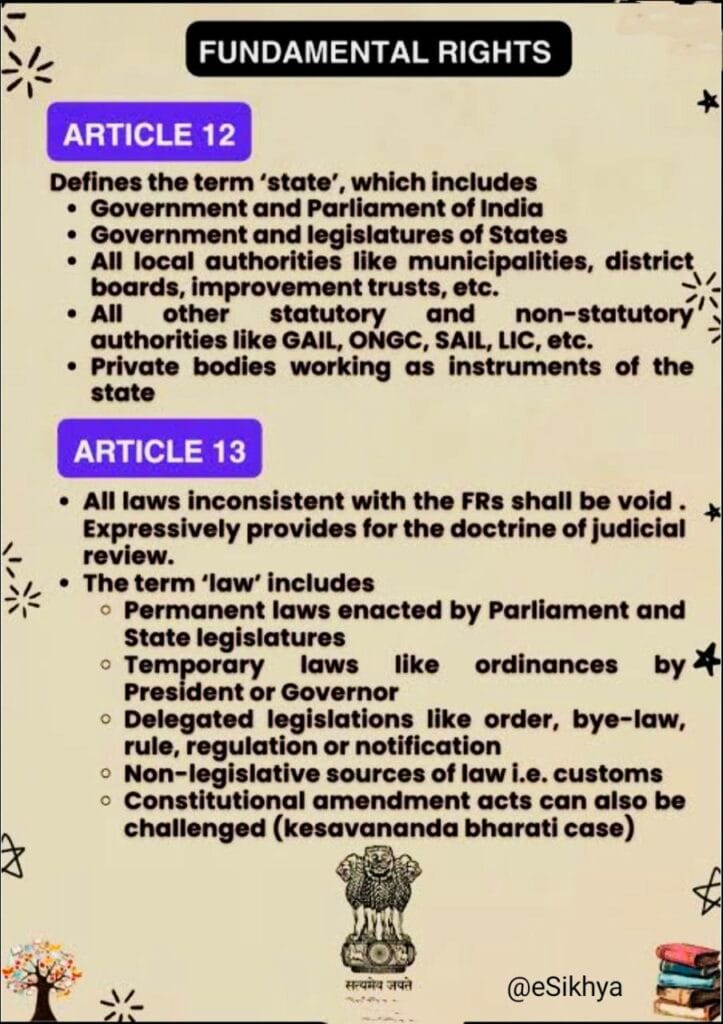The Constitution of India, which came into effect on January 26, 1950, enshrines a comprehensive set of fundamental rights guaranteed to all citizens. These rights are primarily outlined in Part III of the Constitution. Here are the key fundamental rights:

1. Right to Equality (Articles 14-18)
- Article 14: Equality before the law and equal protection of the laws within the territory of India.
- Article 15: Prohibition of discrimination on grounds of religion, race, caste, sex, or place of birth.
- Article 16: Equality of opportunity in matters of public employment.
- Article 17: Abolition of untouchability and prohibition of its practice.
- Article 18: Abolition of titles except military and academic distinctions.
2. Right to Freedom (Articles 19-22)
- Article 19: Protection of certain rights regarding freedom of speech and expression, assembly, association, movement, residence, and profession.
- Article 20: Protection in respect of conviction for offenses (protection against ex post facto laws, double jeopardy, and self-incrimination).
- Article 21: Protection of life and personal liberty.
- Article 21A: Right to education (free and compulsory education to all children aged 6 to 14 years).
- Article 22: Protection against arrest and detention in certain cases.
3. Right against Exploitation (Articles 23-24)
- Article 23: Prohibition of human trafficking and forced labor.
- Article 24: Prohibition of employment of children in factories, etc. (prohibits employment of children below the age of 14 in hazardous jobs).
4. Right to Freedom of Religion (Articles 25-28)
- Article 25: Freedom of conscience and free profession, practice, and propagation of religion.
- Article 26: Freedom to manage religious affairs.
- Article 27: Freedom from payment of taxes for promotion of any particular religion.
- Article 28: Freedom from attending religious instruction or worship in certain educational institutions.
5. Cultural and Educational Rights (Articles 29-30)
- Article 29: Protection of interests of minorities (right to conserve their culture, language, or script).
- Article 30: Right of minorities to establish and administer educational institutions.
6. Right to Constitutional Remedies (Article 32)
- Article 32: Right to move the Supreme Court for the enforcement of fundamental rights (referred to as the “heart and soul” of the Constitution by Dr. B.R. Ambedkar).


Additional Points
- Directive Principles of State Policy (Part IV): Although not enforceable by courts, these principles aim to establish social and economic democracy in the country.
- Fundamental Duties (Part IVA): Introduced by the 42nd Amendment in 1976, these duties are not legally enforceable but aim to promote a sense of responsibility among citizens.
The fundamental rights are designed to ensure the dignity of the individual and create conditions that enable all citizens to achieve their full potential. They form the bedrock of India’s democratic framework and are protected and enforced by the judiciary.
